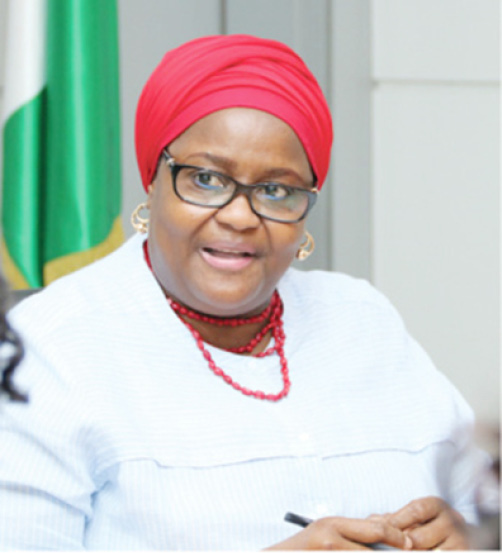The Director-General of the National Pension Commission (PenCom), Mrs Aisha Dahir-Umar, in this interview with Daily Trust speaks on her journey so far as the head of the commission, issues affecting pension reforms and what she described as an increasing campaign to bring PenCom into disrepute by those who lost out as a result of her appointment. Excerpt:
You have been at the helm of affairs at PenCom as the Director-General for over two years now. What have been the ups and downs so far?
One of the natural consequences of leadership is to face challenges as you discharge your responsibilities. We understood this early enough and were also prepared by the opportunity we had to play that role in an acting capacity for over two years.
The initial challenge we had to contend with was to manage the distractions occasioned by the resistance of the erstwhile executive management to accept their disengagement by the federal government.
- Buhari has abandoned us – MACBAN
- Fact Check: Has Buhari made challenges facing Nigerian youth a priority?
We also had to reorganise and streamline the way of doing business in the commission, which expectedly, was abhorred by both internal and external elements that felt a sense of loss within the emergent scheme of affairs.
While we were handling these challenges, the agitations for the exemption of the personnel of the Nigeria Police and paramilitary agencies became heightened, due to complaints of low pension pay-out under the Contributory Pension Scheme.
Furthermore, due to the decline in the federal government revenue during the period, the commission was unable to process the payment of retirement benefits of so many retirees of the federal government under the Contributory Pension Scheme due to the inability of the government to pay their Accrued Pension Rights for about two years.
This was really disabling to the commission, as we felt unable to ensure compliance with the most significant objective of the pension reform, which is that retirees should be paid their benefits as and when due.
We are solemnly humbled to note that despite the above challenges, we are very confident to flaunt our scorecard for the period under review, which is replete with several significant achievements for the Nigerian pension industry in particular and the Nigerian economy in general.
The National Assembly recently passed a bill trying to exclude staff of the National Assembly from the Contributory Pension Scheme. What is the implication of that and what is your stance on it?
The National Pension Commission is categorically opposed to the passage of the bill seeking to exclude the staff of the National Assembly from the Contributory Pension Scheme. The commission will have expressed this position had there been a public hearing on the bill prior to its passage.
It is imperative to note that excluding the National Assembly staff from the CPS will defeat one of the objectives of the pension reform, which seeks to achieve an affordable and sustainable pension system for Nigeria. It has also opened a floodgate for all civil servants. Already, the personnel of the Nigeria Police as well as the police retirees are clamouring for exemption from the CPS. This is clearly unsustainable.
Indeed, there are compelling economic, fiscal, social and public policy arguments against the exemption of the public servants from the CPS, on which space and time do not permit elaborate discussion. However, I will mention few of them to you.
Exemption from the CPS would imply additional financial burden on the federal government by way of unsustainable pension obligations. Meanwhile, the government is already overburdened with the payment of pensions under the Defined Benefits Scheme as illustrated by the 2022 Appropriation Act.
Another immediate negative impact of the proposed exemption from the CPS is to unsettle the FGN’s fiscal policy and financial system stability. It is worthy to note that as at date, about 63.17% of the N14.6 trillion pension assets are invested in federal government securities. Exempting the public sector institutions would lead to material divestment from FGN securities before maturity, which would have ripple negative effects on not only the finances of government, but on the entire financial system.
The argument put forward on the floor of the House of Representatives in support of exemption of public servants has always been hinged on low pensions. However, it is worthy of note that the PRA 2014 has adequate provisions that can resolve this concern without recourse to exemptions from the scheme. This includes the upward review of the rate of pension contributions for the public servants beyond the statutory minimum of 18% and the institution of additional benefits in form of lump-sum at the point of exit.
I will also recommend that Nigeria institutes a zero pillar pensions in the form of social security benefit, which is recognised and provided for under Section 16(2)(d) of the Constitution of the Federal Republic of Nigeria 1999 (as amended). If implemented, it will go a long way to alleviate the sufferings of all Nigerians irrespective of whether or not they had a formal employment. It will also augment earnings from occupational pensions.
In general, office holders like yourself often come under political pressures, how much of political interference have you encountered?
By virtue of Section 17(5) of the Pension Reform Act 2014, the National Pension Commission reports directly to Mr President. However, the commission does that through the Office of the Secretary to the Government of the Federation. I’m glad to say that since my assumption of office as director-general, the commission never had any political interference that hamstrung it from discharging its functions.
We are indeed grateful to Mr President for his support in tackling some of the challenges of the commission in the discharge of its statutory mandate. For instance, towards the end of last year 2021, the retirement benefits of federal government retirees under the Contributory Pension Scheme remained unpaid for about 24 months. At the peak of that dire situation, Mr President approved the sum of N159.466 billion for the payment of outstanding accrued rights and other pension liabilities of government’s retirees, which enabled the payment of their long outstanding retirement benefits to alleviate their sufferings.
The commission was recently accused of paying jumbo salaries to junior staff, although you denied it. But, as they say, there is no smoke without fire. Was the figure actually wrong?
This accusation arose following the commission’s appearance on 15 September 2022 before the House of Representatives Committee on Finance’s 2023–2025 Medium Term Expenditure Framework (MTEF) and Fiscal Strategy Paper (FSP) Interactive Session.
Several questions were raised by the committee members on the commission’s staff costs, to which we duly responded. The commission’s staff cost was, however, mischievously interpreted to mean staff salary. This, therefore, attracted negative media reportage.
As it is very well known in finance and accounts parlance, staff costs cover many items, including salaries and allowances, training and capacity building, pension contributions, etc.
However, one of the committee members did a simple division of the total amount under that subhead against the total number of staff of the commission to arrive at the ‘jumbo figure’. This is not only ridiculous but impossible because staff remunerations differ according to grades and, indeed, not even the general managers (i.e. directors), who are the highest paid, get such amount. The figure was therefore completely wrong.
A group recently petitioned the EFCC alleging fraud and corruption at PenCom. What is your response to these allegations?
This information was brought to the attention of the commission a few days ago. We have also been informed that it is part of a coordinated plan to bring the commission and its management into disrepute, through mass action and frivolous petitions.
However, we have been consistent in our refusal to yield to blackmail. In fact, there had been similar attempts, in the past, to petition other law enforcement agencies on frivolous allegations of wrongdoing against the commission and its management, including myself. All of these failed as nothing untoward was established against us.
We are confident that the same outcome will be arrived at in the event of any future similar inquiry on our affairs. What is constant, however, is that we shall not be distracted from our resolve to ensure due process and legal compliance in the way we administer the commission’s affairs.
You seem to suggest that you have adversaries within and outside PenCom and this may be responsible for the petitions being written against you. Is that a correct reading?
This is irrefutably correct. However, this has been a recurrent decimal since 2017 when I became the acting director-general following the disengagement of the erstwhile executive management by the federal government. Despite all the negativities and attempted distractions, we have, by the grace of Allah, been able to remain focused and able to record many significant feats in the discharge of the commission’s statutory mandate of regulation and supervision of the industry.
Beyond the controversies, how much progress are you making on the pension front in Nigeria?
As I have stated, I’m sincerely gladdened to state that despite the challenges and controversies, the commission has recorded many significant feats under my stewardship as director-general. Some of these achievements include the following: growth of the pension assets from N6.42 trillion in 2017 to N14.6 trillion as at October 2022; introduction of the Multi-Fund Structure of investment of pension fund assets to address the investment appetite and preference of contributors as well as their age profile; approving a structured reduction of fees on Net Asset Value of pension fund assets; and introduction of the Micro Pension Plan for the participation of informal sector workers in the Contributory Pension Scheme.

 Join Daily Trust WhatsApp Community For Quick Access To News and Happenings Around You.
Join Daily Trust WhatsApp Community For Quick Access To News and Happenings Around You.
